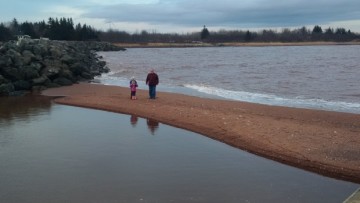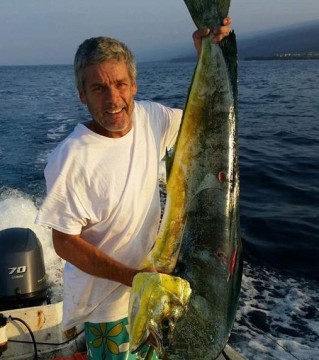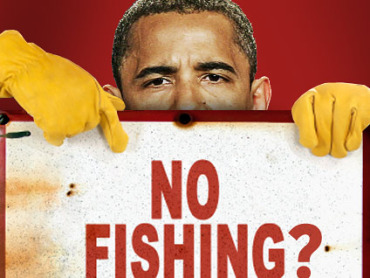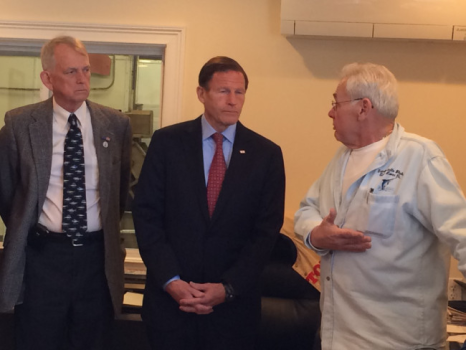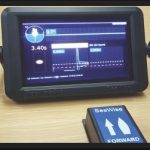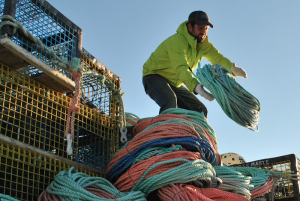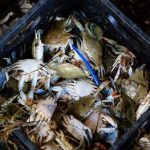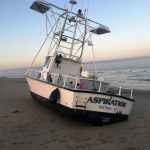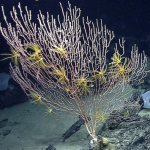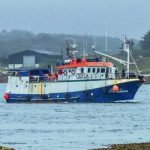Monthly Archives: April 2016
What the fish in Alaska’s oceans are eating — and what that can tell us
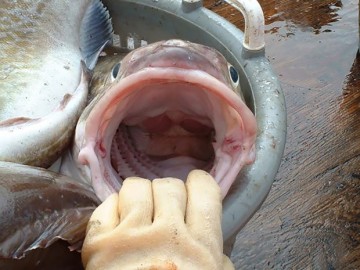 Ever wonder what eats the salmon that don’t make it back to Bristol Bay? Or what fish are cannibals? A new database released online in late March by the National Marine Fisheries Service offers a glimpse into fish diets, based on decades of study of their stomach contents. It ranges from commonly known species like halibut, Pacific cod and pollock, to lesser-known fish, like sculpins, snailfish and even alligatorfish. Herring and salmon also make an appearance, although they aren’t the focus. Kerim Aydin, a supervisory fisheries biologist at the in Seattle, said the database includes collections that have been in the works since the 1980s, and is largely focused on commercial groundfish species. Read the rest here 10:55
Ever wonder what eats the salmon that don’t make it back to Bristol Bay? Or what fish are cannibals? A new database released online in late March by the National Marine Fisheries Service offers a glimpse into fish diets, based on decades of study of their stomach contents. It ranges from commonly known species like halibut, Pacific cod and pollock, to lesser-known fish, like sculpins, snailfish and even alligatorfish. Herring and salmon also make an appearance, although they aren’t the focus. Kerim Aydin, a supervisory fisheries biologist at the in Seattle, said the database includes collections that have been in the works since the 1980s, and is largely focused on commercial groundfish species. Read the rest here 10:55
MFV Louisa was rescued four times before tragic sinking
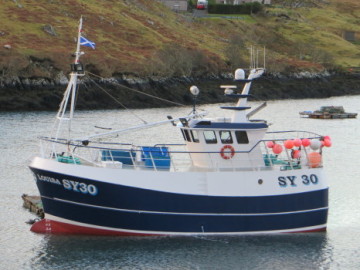 The crab boat which sank off the Western Isles just over a week ago was rescued by lifeboats on four previous occasions, prior to the tragedy. Skipper Paul Alliston, 42, remains unaccounted for after the MFV Louisa sank off the coast of Mingulay. Fishermen Martin Johnstone, 29, from Caithness and Chris Morrison, 27, from Stornoway both died in the incident, while crewman Lachlann Armstrong, 27, managed to swim to safety. Police are carrying out a joint investigation with the Marine Accidents Investigation Branch (MAIB) and are considering bringing the boat to the surface as part of the inquiry. Yesterday, it emerged that the vessel had been the subject of four separate lifeboat call-outs. The crew were rescued for a second time that month in February 2014 when the vessel ran aground on the uninhabited Ascrib Islands in Loch Snizort in north-west Skye. Read the rest here 09:59
The crab boat which sank off the Western Isles just over a week ago was rescued by lifeboats on four previous occasions, prior to the tragedy. Skipper Paul Alliston, 42, remains unaccounted for after the MFV Louisa sank off the coast of Mingulay. Fishermen Martin Johnstone, 29, from Caithness and Chris Morrison, 27, from Stornoway both died in the incident, while crewman Lachlann Armstrong, 27, managed to swim to safety. Police are carrying out a joint investigation with the Marine Accidents Investigation Branch (MAIB) and are considering bringing the boat to the surface as part of the inquiry. Yesterday, it emerged that the vessel had been the subject of four separate lifeboat call-outs. The crew were rescued for a second time that month in February 2014 when the vessel ran aground on the uninhabited Ascrib Islands in Loch Snizort in north-west Skye. Read the rest here 09:59
Scientists find a crab party deep in the ocean
 A year ago, researchers in two small submarines were exploring a seamount — an underwater, flat-topped mountain — off the Pacific coast of Panama when they noticed a dense cloud of sediment extending 4 to 10 meters above the seafloor. One of the submarines approached closer, and the scientists could soon see what was kicking up the cloud: thousands of small, red crabs that were swarming together like insects. At the densest points in the swarm, there were more than 70 crabs in a square meter of ocean bottom, and this occurred consistently in a water depth of 350 to 390 meters. The crabs, all 2.3 centimeters in carapace length and larger, were moving together in the same general direction. Some would jump and swim for about 10 centimeters or so before landing back in the pack. Video, Read the rest here 09:41
A year ago, researchers in two small submarines were exploring a seamount — an underwater, flat-topped mountain — off the Pacific coast of Panama when they noticed a dense cloud of sediment extending 4 to 10 meters above the seafloor. One of the submarines approached closer, and the scientists could soon see what was kicking up the cloud: thousands of small, red crabs that were swarming together like insects. At the densest points in the swarm, there were more than 70 crabs in a square meter of ocean bottom, and this occurred consistently in a water depth of 350 to 390 meters. The crabs, all 2.3 centimeters in carapace length and larger, were moving together in the same general direction. Some would jump and swim for about 10 centimeters or so before landing back in the pack. Video, Read the rest here 09:41
Safety switch could have saved this young Fisherman’s life from electrocution
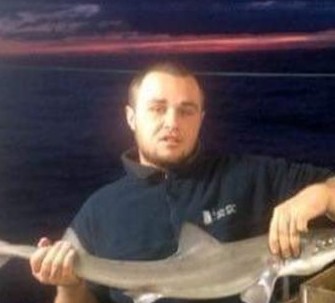 An inquest into the death of a man electrocuted on a Top End prawn trawler has heard a safety switch could have saved his life. Ryan Donoghue, 20, was using an angle grinder on the deck of Austral Fisheries’ Newfish 1 to cut rusted shackles when he was hit by a wave and electrocuted. Counsel assisting the Coroner, Kelvin Currie, told the inquest the grinder had been plugged into a socket without a safety switch, known as a residual current device (RCD). Newfish 1 was about 11 hours from the Arnhem Land coast when the accident occurred in November 2013. Read the rest here 09:11
An inquest into the death of a man electrocuted on a Top End prawn trawler has heard a safety switch could have saved his life. Ryan Donoghue, 20, was using an angle grinder on the deck of Austral Fisheries’ Newfish 1 to cut rusted shackles when he was hit by a wave and electrocuted. Counsel assisting the Coroner, Kelvin Currie, told the inquest the grinder had been plugged into a socket without a safety switch, known as a residual current device (RCD). Newfish 1 was about 11 hours from the Arnhem Land coast when the accident occurred in November 2013. Read the rest here 09:11
The Impacts of Trawling in the North Sea are Overrated
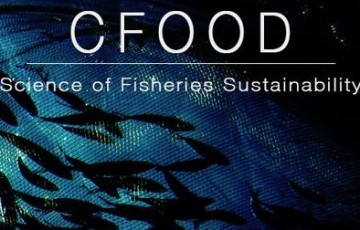 A new study by Ferdinand Oberle, Curt Storlazzi, and Till Hanebuth attempted to quantify the global impact of bottom trawling on continental shelf. It presents a high-resolution, one-year, spatial record of ground-penetrating fishing activities, namely otter trawling (referred to as bottom-trawling in the paper) on the NW-Iberian shelf, and calculates the resuspended sediment load caused by the operations of this fleet. The authors also challenge conclusions from papers like Kaiser et al 2006 that suggest trawling affected seabed hotspots are rare. To this end the authors found NW Iberian shelf areas to be experiencing trawling on average 5.9 times per annum compared to less than 1 in previous studies. Read the rest here 21:18
A new study by Ferdinand Oberle, Curt Storlazzi, and Till Hanebuth attempted to quantify the global impact of bottom trawling on continental shelf. It presents a high-resolution, one-year, spatial record of ground-penetrating fishing activities, namely otter trawling (referred to as bottom-trawling in the paper) on the NW-Iberian shelf, and calculates the resuspended sediment load caused by the operations of this fleet. The authors also challenge conclusions from papers like Kaiser et al 2006 that suggest trawling affected seabed hotspots are rare. To this end the authors found NW Iberian shelf areas to be experiencing trawling on average 5.9 times per annum compared to less than 1 in previous studies. Read the rest here 21:18
Maryland scientists to conduct Chesapeake Bay oyster harvest study
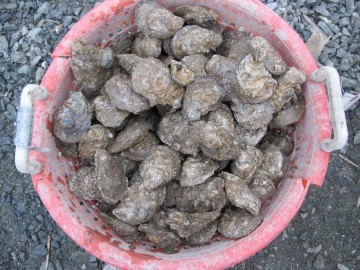 Scientists say they have only a vague idea of how many oysters cover the reefs in the Chesapeake Bay, and can’t say how many can be harvested safely each year without threatening the future of an already decimated population.In the waning hours of its 2016 session, the Maryland General Assembly this week authorized a study that advocates say will not only provide a more precise count of the bivalves, but assess how quickly they are reproducing, how fast they are growing and how they are faring against disease. The oyster study stoked controversy in an hours-long hearing earlier this month. Many watermen said it would lead inevitably to restrictions on their harvests, and the state Department of Natural Resources initially opposed it because the legislation left the DNR out of the research. But in a compromise, lawmakers gave the department responsibility for the study, to be conducted by researchers at the University of Maryland Center for Environmental Science. A final report is due in December 2018. Read the rest here 19:12
Scientists say they have only a vague idea of how many oysters cover the reefs in the Chesapeake Bay, and can’t say how many can be harvested safely each year without threatening the future of an already decimated population.In the waning hours of its 2016 session, the Maryland General Assembly this week authorized a study that advocates say will not only provide a more precise count of the bivalves, but assess how quickly they are reproducing, how fast they are growing and how they are faring against disease. The oyster study stoked controversy in an hours-long hearing earlier this month. Many watermen said it would lead inevitably to restrictions on their harvests, and the state Department of Natural Resources initially opposed it because the legislation left the DNR out of the research. But in a compromise, lawmakers gave the department responsibility for the study, to be conducted by researchers at the University of Maryland Center for Environmental Science. A final report is due in December 2018. Read the rest here 19:12
As ‘ghost fishing’ ravages ocean stocks, efforts build to retrieve killer lost nets and traps
 Abandoned or lost fishing gear — including traps, crab pots and nets — litters the ocean floor in coastal areas around the world. Many continue to attract, entrap and kill fish and other marine life in what is called “ghost fishing.” Groups, governments and companies around the world are engaged in efforts to retrieve and recycle as much of the abandoned gear as they can get their hands on. The goal is to protect the environment, prevent marine life from being killed, remove threats to navigation and, in some cases, generate energy. Read the rest here 17:09
Abandoned or lost fishing gear — including traps, crab pots and nets — litters the ocean floor in coastal areas around the world. Many continue to attract, entrap and kill fish and other marine life in what is called “ghost fishing.” Groups, governments and companies around the world are engaged in efforts to retrieve and recycle as much of the abandoned gear as they can get their hands on. The goal is to protect the environment, prevent marine life from being killed, remove threats to navigation and, in some cases, generate energy. Read the rest here 17:09
Cannery Row history: Western Flyer puzzle takes shape
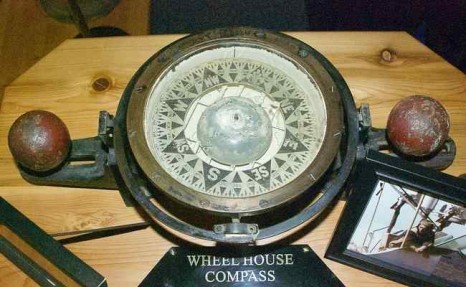 Revelations at the Cannery Row Symposium just keep getting better and better. Last year it was announced that the Western Flyer, the fishing boat leased by John Steinbeck and Ed Ricketts for their historic collecting trip to the Sea of Cortez, had been purchased and would be restored and returned to Monterey Bay as an educational classroom. At this year’s event, held Saturday at Hopkins Marine Station, the wheel from the fishing boat’s flying bridge and two compasses were displayed. It was also announced that the foundation has come into possession of Ricketts’ rolodex. The rolodex is two boxes of index cards that survived the fire that destroyed his business, Pacific Biological Laboratories, in 1936. It gives a broader picture of how the marine biologist was connected to scientists all over the world. But more on that later.,, Read the article here 14:46
Revelations at the Cannery Row Symposium just keep getting better and better. Last year it was announced that the Western Flyer, the fishing boat leased by John Steinbeck and Ed Ricketts for their historic collecting trip to the Sea of Cortez, had been purchased and would be restored and returned to Monterey Bay as an educational classroom. At this year’s event, held Saturday at Hopkins Marine Station, the wheel from the fishing boat’s flying bridge and two compasses were displayed. It was also announced that the foundation has come into possession of Ricketts’ rolodex. The rolodex is two boxes of index cards that survived the fire that destroyed his business, Pacific Biological Laboratories, in 1936. It gives a broader picture of how the marine biologist was connected to scientists all over the world. But more on that later.,, Read the article here 14:46
Letter: Follow the leaders in fisheries management – Gus Etchegary Portugal Cove-St. Philip’s
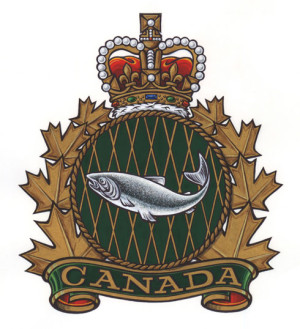 I have recently been in contact with former associates in Iceland, Norway and other advanced fishing nations on the status of their fishing industries, including fisheries management, processing technology, customer demands (for fresh, primary and secondary-processed fish products) and ongoing technical advances. I also questioned how these developments impact prices paid to fishermen and processing plant labour. As a result of impressive technical advances made in Iceland, Norway and Alaska in resource management and other key areas from processing higher quality fish and market development, their industries are now paying far higher prices to fishermen and higher wages to processors. Of even greater significance is the enormous contribution their fishing industry is making to their respective economies. Read the rest here 09:58
I have recently been in contact with former associates in Iceland, Norway and other advanced fishing nations on the status of their fishing industries, including fisheries management, processing technology, customer demands (for fresh, primary and secondary-processed fish products) and ongoing technical advances. I also questioned how these developments impact prices paid to fishermen and processing plant labour. As a result of impressive technical advances made in Iceland, Norway and Alaska in resource management and other key areas from processing higher quality fish and market development, their industries are now paying far higher prices to fishermen and higher wages to processors. Of even greater significance is the enormous contribution their fishing industry is making to their respective economies. Read the rest here 09:58
Collapse of kelp forest imperils North Coast ocean ecosystem
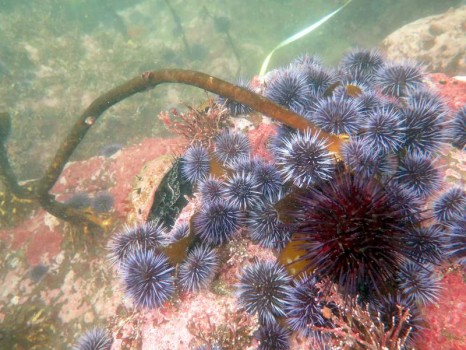 Large tracts of kelp forest that once blanketed the sea off the North Coast have vanished over the past two years, a startling transformation that scientists say stems from rapid ecological change and has potentially far-reaching impacts, including on several valuable fisheries. The unprecedented collapse has been observed along hundreds of miles of coastline from San Francisco to Oregon. The region’s once-lush stands of bull kelp, a large brown alga that provides food and habitat for a host of wildlife species, have been devoured by small, voracious purple urchins. In the most-affected areas, denuded kelp stalks are almost all that remains of plant life. Read the article here 09:02
Large tracts of kelp forest that once blanketed the sea off the North Coast have vanished over the past two years, a startling transformation that scientists say stems from rapid ecological change and has potentially far-reaching impacts, including on several valuable fisheries. The unprecedented collapse has been observed along hundreds of miles of coastline from San Francisco to Oregon. The region’s once-lush stands of bull kelp, a large brown alga that provides food and habitat for a host of wildlife species, have been devoured by small, voracious purple urchins. In the most-affected areas, denuded kelp stalks are almost all that remains of plant life. Read the article here 09:02
State Department enters trade dispute over Maine lobsters
 The U.S. State Department is adding its muscle to help resolve an impending trade dispute between exporters of live Maine lobsters and the European Union. Responding to a letter from Maine’s congressional delegation, officials in the Obama administration have committed the State Department to address the trade threat. In March, Sweden announced it was attempting to ban live North American lobsters from the 28-country EU, citing concerns that some of them have been found in European waters and are an “invasive species” that threatens Europe’s native lobster species. “The State Department is on our side,” Sen. Angus King said Friday evening, “and I think they’re going to be aggressive.” Read the rest here 11:27
The U.S. State Department is adding its muscle to help resolve an impending trade dispute between exporters of live Maine lobsters and the European Union. Responding to a letter from Maine’s congressional delegation, officials in the Obama administration have committed the State Department to address the trade threat. In March, Sweden announced it was attempting to ban live North American lobsters from the 28-country EU, citing concerns that some of them have been found in European waters and are an “invasive species” that threatens Europe’s native lobster species. “The State Department is on our side,” Sen. Angus King said Friday evening, “and I think they’re going to be aggressive.” Read the rest here 11:27
Cape Cod seals return in masses on video: Great whites and fishermen woes follow
 Before 1972 you were lucky to see a single seal in the waters or on the beaches of the Cape. Then when the Marine Mammal Protection Act went into effect, the hunting abruptly stopped and they were able to grow in number and that brings it up to the masses of seals being spotted today! They inhabited the beaches in masses until they were almost hunted to extinction along the Cape’s waters decades ago. Now that they are a protected species, their numbers are up, too far up for some folks who live and work on the Cape and surrounding areas. The fishermen who utilize these waters for their livelihood say that the seals are eating all the fish. The seals do eat a lot of fish. An 800-pound male seal “could consume up to six percent of his body weight each day. That’s 50 pounds of fish, including valuable species like cod and flounder.” With the seal population numbering in the thousands, you don’t have to do the math to see these summer residents are competition for the fishermen. Video, read the story here 10:56
Before 1972 you were lucky to see a single seal in the waters or on the beaches of the Cape. Then when the Marine Mammal Protection Act went into effect, the hunting abruptly stopped and they were able to grow in number and that brings it up to the masses of seals being spotted today! They inhabited the beaches in masses until they were almost hunted to extinction along the Cape’s waters decades ago. Now that they are a protected species, their numbers are up, too far up for some folks who live and work on the Cape and surrounding areas. The fishermen who utilize these waters for their livelihood say that the seals are eating all the fish. The seals do eat a lot of fish. An 800-pound male seal “could consume up to six percent of his body weight each day. That’s 50 pounds of fish, including valuable species like cod and flounder.” With the seal population numbering in the thousands, you don’t have to do the math to see these summer residents are competition for the fishermen. Video, read the story here 10:56
Retired Key West fisherman gets year for defrauding BP oil spill program
 A retired Key West commercial fisherman who swindled $30,000 from the BP relief program set up after the 2010 oil spill will spend one year and one day in prison for fraud. Raul Rioseco, 73, was sentenced Tuesday at in Key West by Judge Jose Martinez, after taking a plea deal last month in which he admitted to one count of mail fraud. Rioseco, who has been retired since about 2004, was also ordered by the court to make reimbursement of $144,606. But federal prosecutors say he and his daughter combined raided nearly $500,000 from BP for purported income losses in Key West, which didn’t get a drop of oil from the April 20, 2010 Deepwater Horizon disaster. His daughter, Caridad Rioseco Alejandrez, awaits sentencing July 11 before Martinez in Key West, after prosecutors say she filed some 600 claims after the BP oil spill. Read the rest here 10:34
A retired Key West commercial fisherman who swindled $30,000 from the BP relief program set up after the 2010 oil spill will spend one year and one day in prison for fraud. Raul Rioseco, 73, was sentenced Tuesday at in Key West by Judge Jose Martinez, after taking a plea deal last month in which he admitted to one count of mail fraud. Rioseco, who has been retired since about 2004, was also ordered by the court to make reimbursement of $144,606. But federal prosecutors say he and his daughter combined raided nearly $500,000 from BP for purported income losses in Key West, which didn’t get a drop of oil from the April 20, 2010 Deepwater Horizon disaster. His daughter, Caridad Rioseco Alejandrez, awaits sentencing July 11 before Martinez in Key West, after prosecutors say she filed some 600 claims after the BP oil spill. Read the rest here 10:34
P.E.I. to offer boat building course to unemployed, underemployed workers
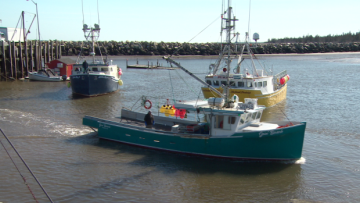 P.E.I.’s provincial government is part of a push to help unemployed people find work in boat building — and provide workers for the boat building industry, through a 13-week training program. The province has teamed up with the Central Development Corporation, Island boat building businesses, and the Nova Scotia Boat Builders Association to offer a Fundamentals of Fibreglass Lamination. Economic Development and Tourism Minister Heath MacDonald said after discussions with the industry, it was clear that there was a real need for additional workers, due to the high demand for fibreglass boats. The program will be offered to unemployed, underemployed, and young people on P.E.I. It has space for 15 participants. The deadline to apply is April 24. Link 10:19
P.E.I.’s provincial government is part of a push to help unemployed people find work in boat building — and provide workers for the boat building industry, through a 13-week training program. The province has teamed up with the Central Development Corporation, Island boat building businesses, and the Nova Scotia Boat Builders Association to offer a Fundamentals of Fibreglass Lamination. Economic Development and Tourism Minister Heath MacDonald said after discussions with the industry, it was clear that there was a real need for additional workers, due to the high demand for fibreglass boats. The program will be offered to unemployed, underemployed, and young people on P.E.I. It has space for 15 participants. The deadline to apply is April 24. Link 10:19
Video: Coast Guard Rescues 3 From Sinking Fishing Vessel Near Grays Harbor, Wash.
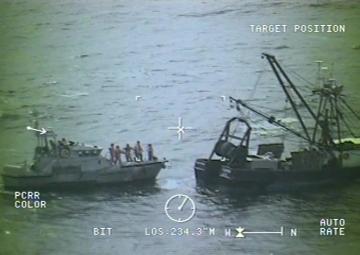 A Coast Guard boat crew rescued three fishermen after their vessel took on water and sank less than one mile outside of Grays Harbor Friday. The Coast Guard said a crew from Coast Guard Station Grays Harbor transported the fishermen to shore, where emergency medical services personnel evaluated one of them for a reported heart condition. The crew of the 74-foot fishing vessel Privateer called Station Grays Harbor watchstanders via VHF radio channel 16 at 2:26 p.m., stating they were taking on water through an 8-to-12-inch hole, deploying their life raft and donning immersion suits preparing to abandon ship, the Coast Guard said. Read the post here Watch video here 08:45
A Coast Guard boat crew rescued three fishermen after their vessel took on water and sank less than one mile outside of Grays Harbor Friday. The Coast Guard said a crew from Coast Guard Station Grays Harbor transported the fishermen to shore, where emergency medical services personnel evaluated one of them for a reported heart condition. The crew of the 74-foot fishing vessel Privateer called Station Grays Harbor watchstanders via VHF radio channel 16 at 2:26 p.m., stating they were taking on water through an 8-to-12-inch hole, deploying their life raft and donning immersion suits preparing to abandon ship, the Coast Guard said. Read the post here Watch video here 08:45
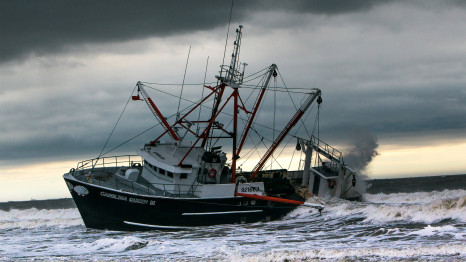
Mayday on the Carolina Queen III
The seven fishermen aboard the Carolina Queen III, a 76-foot scalloping boat that set out from Norfolk, Va., had been at sea for four days when the skies darkened off the coast of the Rockaways. A powerful storm system that had already lashed the East Coast, bringing tornadoes, thunder, lightning, high winds and heavy rains, was barreling down on them. Homes had been flattened, vehicles had been tossed like Tinkertoys and trees had been ripped from their roots. At least seven people had died. The crew knew they were in for nasty weather, but they were scallopers. Weather comes with the job. Read the story here 07:52
Coast Guard Assists 2 on disabled vessel off Beauford Inlet
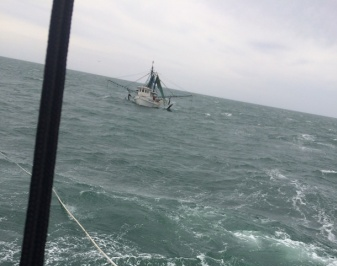 The Coast Guard rescued a husband and wife today one and a half miles southeast of Beaufort Inlet. Watchstanders at Coast Guard Sector North Carolina received a report at approximately 12:10 p.m. that the 45-foot fishing boat Captain Dump II out of Marshallberg was disabled and at anchor with a married couple aboard. A 47-foot Motor Lifeboat crew from Coast Guard Station Fort Macon launched at approximately 12:30 p.m. The boat crew towed the fishing boat back inside Beaufort Inlet, where the fishing vessel Lady Jane took the fishing vessel in tow. The two fishing vessels are en route back to Marshallberg. 20:32
The Coast Guard rescued a husband and wife today one and a half miles southeast of Beaufort Inlet. Watchstanders at Coast Guard Sector North Carolina received a report at approximately 12:10 p.m. that the 45-foot fishing boat Captain Dump II out of Marshallberg was disabled and at anchor with a married couple aboard. A 47-foot Motor Lifeboat crew from Coast Guard Station Fort Macon launched at approximately 12:30 p.m. The boat crew towed the fishing boat back inside Beaufort Inlet, where the fishing vessel Lady Jane took the fishing vessel in tow. The two fishing vessels are en route back to Marshallberg. 20:32
Ocean salmon seasons set by PFMC, pending NMFS final approval
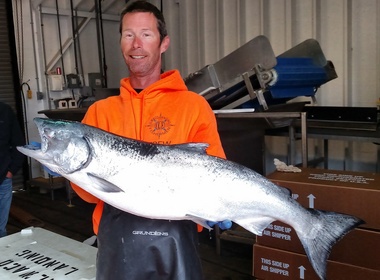 The Pacific Fishery Management Council struggled through week-long negotiations over widely contrasting salmon outlooks before setting sport and commercial rules for coastal Oregon, Washington and California on Thursday afternoon. Its decisions still require approval by the National Marine Fisheries Service. Chinook salmon fishing will be allowed from all ports, with reduced commercial seasons bearing the brunt of cutbacks in southerly waters. The Oregon Fish and Wildlife Commission will adopt ocean salmon regulations for state waters at its April 22 meeting in Bandon. The commission typically matches regulations set by the Management Council. Read the article here 11:19
The Pacific Fishery Management Council struggled through week-long negotiations over widely contrasting salmon outlooks before setting sport and commercial rules for coastal Oregon, Washington and California on Thursday afternoon. Its decisions still require approval by the National Marine Fisheries Service. Chinook salmon fishing will be allowed from all ports, with reduced commercial seasons bearing the brunt of cutbacks in southerly waters. The Oregon Fish and Wildlife Commission will adopt ocean salmon regulations for state waters at its April 22 meeting in Bandon. The commission typically matches regulations set by the Management Council. Read the article here 11:19
Burnt twice: Digby County halibut fishermen handed $45,000 in penalties
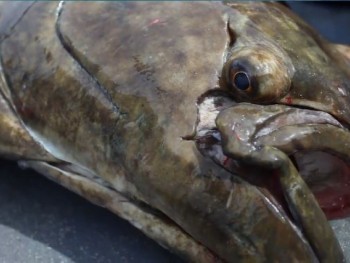 An illegal offload of halibut ended up costing three Digby County fishermen more than $45,000 in fines and lost revenue. Chris Titus, Peter Titus and Trevor Frost pled guilty April 5 to offloading halibut without an observer, failure to weigh the fish on a proper scale and offloading prior to haling in. Fisheries officers observed the illegal offload on Brier Island on June 10, 2015 and stopped a truck in Yarmouth carrying 712 pounds of halibut. The officers seized that halibut and the truck and another 182 pounds aboard the fishing vessel. Fisheries sold the fish for $7,129. The fishermen paid a $12,000 bond to get the truck back and the judge imposed a $14,000 fine. But the Fundy Fixed Gear Council (FFGC) also imposed sanctions,,, Read the rest here 10:13
An illegal offload of halibut ended up costing three Digby County fishermen more than $45,000 in fines and lost revenue. Chris Titus, Peter Titus and Trevor Frost pled guilty April 5 to offloading halibut without an observer, failure to weigh the fish on a proper scale and offloading prior to haling in. Fisheries officers observed the illegal offload on Brier Island on June 10, 2015 and stopped a truck in Yarmouth carrying 712 pounds of halibut. The officers seized that halibut and the truck and another 182 pounds aboard the fishing vessel. Fisheries sold the fish for $7,129. The fishermen paid a $12,000 bond to get the truck back and the judge imposed a $14,000 fine. But the Fundy Fixed Gear Council (FFGC) also imposed sanctions,,, Read the rest here 10:13
Former “Deadliest Catch” cast member headed to court on child porn charges
 A local man once known for his role on the popular reality TV series Deadliest Catch series now faces some disturbing charges in Spokane County after he was caught with child pornography with girls as young as five years old. Paul Albert Edgren was a cast member for two seasons of Deadliest Catch, the Emmy award winning show on the Discovery Channel. He starred in six episodes between 2010 and 2011 as a deck hand on the Wizard, the crab ship captained by Keith Colburn. Die-hard fans of the show may remember Edgren left the crew to pursue a mountaineering career. He came back to Spokane and, according to court documents, three years later, a cyber tip from the Center For Missing And Exploited Children led detectives to his South Hill home. Read the story here 09:55
A local man once known for his role on the popular reality TV series Deadliest Catch series now faces some disturbing charges in Spokane County after he was caught with child pornography with girls as young as five years old. Paul Albert Edgren was a cast member for two seasons of Deadliest Catch, the Emmy award winning show on the Discovery Channel. He starred in six episodes between 2010 and 2011 as a deck hand on the Wizard, the crab ship captained by Keith Colburn. Die-hard fans of the show may remember Edgren left the crew to pursue a mountaineering career. He came back to Spokane and, according to court documents, three years later, a cyber tip from the Center For Missing And Exploited Children led detectives to his South Hill home. Read the story here 09:55
By the Numbers – Forum convinces many commercial fishing is sustainable
 Those attending the forum, sponsored by The Providence Journal, Leadership Rhode Island, Rhode Island College and the Mystic Aquarium, were given electronic remote controls that allowed them to vote anonymously on multiple-choice questions. At the start of the program, 69 percent of audience members said commercial fishing is sustainable. At the end, that had risen to 78 percent. When broken down by groups, 88 percent of the people who said they were in the industry also said that the industry should regulate fishing, while 35 percent of recreational fishermen agreed, as did 43 percent of the people who identified themselves as consumers of fish. Read the rest here 07:41
Those attending the forum, sponsored by The Providence Journal, Leadership Rhode Island, Rhode Island College and the Mystic Aquarium, were given electronic remote controls that allowed them to vote anonymously on multiple-choice questions. At the start of the program, 69 percent of audience members said commercial fishing is sustainable. At the end, that had risen to 78 percent. When broken down by groups, 88 percent of the people who said they were in the industry also said that the industry should regulate fishing, while 35 percent of recreational fishermen agreed, as did 43 percent of the people who identified themselves as consumers of fish. Read the rest here 07:41
Is commercial fishing sustainable? An industry at crossroads
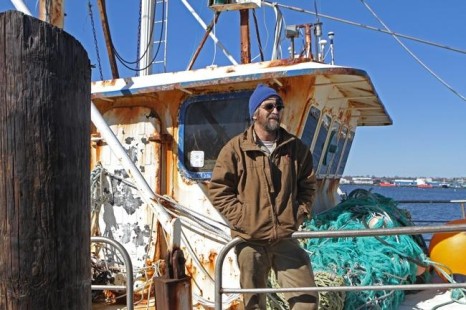 A diverse panel of New England fishing experts, from a top federal administrator to a seasoned commercial fishing captain who says the scent of burnt coffee has replaced the smell of fish in his home port, gathered Thursday evening and tried to answer one question. Is commercial fishing sustainable? The discussion about the future of the region’s fishing industry featured a series of exchanges between two colorful fishing captains, an aquatic ecologist from the University of Rhode Island, a lawyer for Earthjustice and a fisheries expert from the Environmental Defense Fund. Read the rest here 06:17
A diverse panel of New England fishing experts, from a top federal administrator to a seasoned commercial fishing captain who says the scent of burnt coffee has replaced the smell of fish in his home port, gathered Thursday evening and tried to answer one question. Is commercial fishing sustainable? The discussion about the future of the region’s fishing industry featured a series of exchanges between two colorful fishing captains, an aquatic ecologist from the University of Rhode Island, a lawyer for Earthjustice and a fisheries expert from the Environmental Defense Fund. Read the rest here 06:17
Fishermen-heavy crowd shows frustration with catch rules, monitoring costs at RI forum
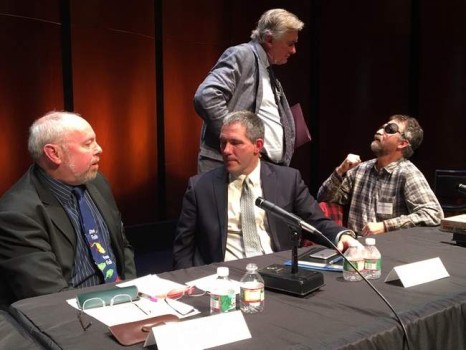 A forum on the sustainability of the commercial fishing industry revealed significant frustration in a fisherman-heavy crowd and a few suggestions for future changes, but little tangible optimism, Thursday night at Rhode Island College. “Right now, there are more fish in the Atlantic Ocean than there was 20 or 30 years ago — we are just not allowed to catch them anymore,” said fisherman Mark Phillips, a New York native who has fished out of New Bedford for several decades. Phillips and New Hampshire fisherman David Goethel, who sued the National Oceanic and Atmospheric Administration (NOAA) in December over catch monitoring costs, were the two fishermen on the forum’s six-person panel. Read the story here 05:53
A forum on the sustainability of the commercial fishing industry revealed significant frustration in a fisherman-heavy crowd and a few suggestions for future changes, but little tangible optimism, Thursday night at Rhode Island College. “Right now, there are more fish in the Atlantic Ocean than there was 20 or 30 years ago — we are just not allowed to catch them anymore,” said fisherman Mark Phillips, a New York native who has fished out of New Bedford for several decades. Phillips and New Hampshire fisherman David Goethel, who sued the National Oceanic and Atmospheric Administration (NOAA) in December over catch monitoring costs, were the two fishermen on the forum’s six-person panel. Read the story here 05:53
Bering Sea crab prices increase big across the board
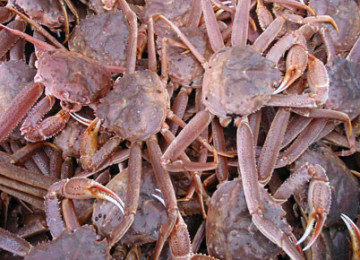 Only a handful of boats are still out hauling crab pots from the Bering Sea and they can be sure of a good price for their catch. It’s just been a really good year for crab all around. Jake Jacobsen is a four decade fishing veteran and director of the Inter-Cooperative Exchange, a harvester group that catches 70 percent of the Bering Sea crab quota. Right now the boats are finishing off the Tanner and snow crab shares. We haven’t even started the final prices for snow crab yet. We started out with an advance of $2.00 a pound but that really doesn’t mean anything. The advance price is just a number we throw out there so the fishermen have some money to pay their expenses as they go along. Audio, Read the rest here 18:35
Only a handful of boats are still out hauling crab pots from the Bering Sea and they can be sure of a good price for their catch. It’s just been a really good year for crab all around. Jake Jacobsen is a four decade fishing veteran and director of the Inter-Cooperative Exchange, a harvester group that catches 70 percent of the Bering Sea crab quota. Right now the boats are finishing off the Tanner and snow crab shares. We haven’t even started the final prices for snow crab yet. We started out with an advance of $2.00 a pound but that really doesn’t mean anything. The advance price is just a number we throw out there so the fishermen have some money to pay their expenses as they go along. Audio, Read the rest here 18:35
Know your Shem Creek Fishermen! Town of Mt. Pleasant approves new Saturday morning fish market
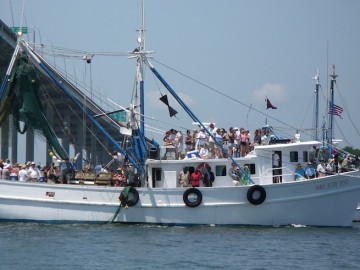 Shem Creek fisherman had a small victory this week. The Town of Mt. Pleasant has approved a new Saturday morning fish market. On Tuesday Town Council voted to establish a fish market at the current Farmers Market location at Moultrie Middle School on Saturdays from 8 a.m. to 12 p.m. Shem Creek shrimper Tommy Edwards says he welcomes the new market. Tommy sells all his catch directly from his boat, but he says a Saturday fish market would give him or his wife the opportunity to not only sell shrimp to more customers but to encourage people to shop direct from his boat during the week “With me, I don’t have a fish retail spot. What I catch, I have to hustle myself every day,” adds Tommy. “If I have a real good day, I have to get rid of my shrimp.” Bringing his shrimp from the boat to the market should help Tommy, Katherine Hendricks, the town’s assistant administrator, believes. Read the rest here 18:05
Shem Creek fisherman had a small victory this week. The Town of Mt. Pleasant has approved a new Saturday morning fish market. On Tuesday Town Council voted to establish a fish market at the current Farmers Market location at Moultrie Middle School on Saturdays from 8 a.m. to 12 p.m. Shem Creek shrimper Tommy Edwards says he welcomes the new market. Tommy sells all his catch directly from his boat, but he says a Saturday fish market would give him or his wife the opportunity to not only sell shrimp to more customers but to encourage people to shop direct from his boat during the week “With me, I don’t have a fish retail spot. What I catch, I have to hustle myself every day,” adds Tommy. “If I have a real good day, I have to get rid of my shrimp.” Bringing his shrimp from the boat to the market should help Tommy, Katherine Hendricks, the town’s assistant administrator, believes. Read the rest here 18:05
Brexit – Many in British Fishing Port Want E.U. Out of Their Waters
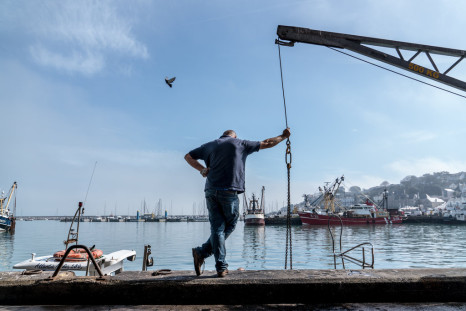 Brixham, England — Mike Walker, a retired fisherman here, sums up what many in this southern English port town think of the European Union. Britain’s membership in the 28-nation union has encouraged France, Spain, the Netherlands and “the rest of them lot” to “come rape our waters,” Mr. Walker said. Others here might use less extreme language. But Mr. Walker’s opinion resonates in this town of 17,000. And it signals a wider British discomfort with the European Union before the country votes in a June 23 referendum on whether to quit the union. Whether their grievances involve fish, immigrants or meddlesome rules, many Britons resent what they view as interference by European institutions and bureaucrats based in Brussels. Read the rest here 17:38
Brixham, England — Mike Walker, a retired fisherman here, sums up what many in this southern English port town think of the European Union. Britain’s membership in the 28-nation union has encouraged France, Spain, the Netherlands and “the rest of them lot” to “come rape our waters,” Mr. Walker said. Others here might use less extreme language. But Mr. Walker’s opinion resonates in this town of 17,000. And it signals a wider British discomfort with the European Union before the country votes in a June 23 referendum on whether to quit the union. Whether their grievances involve fish, immigrants or meddlesome rules, many Britons resent what they view as interference by European institutions and bureaucrats based in Brussels. Read the rest here 17:38






